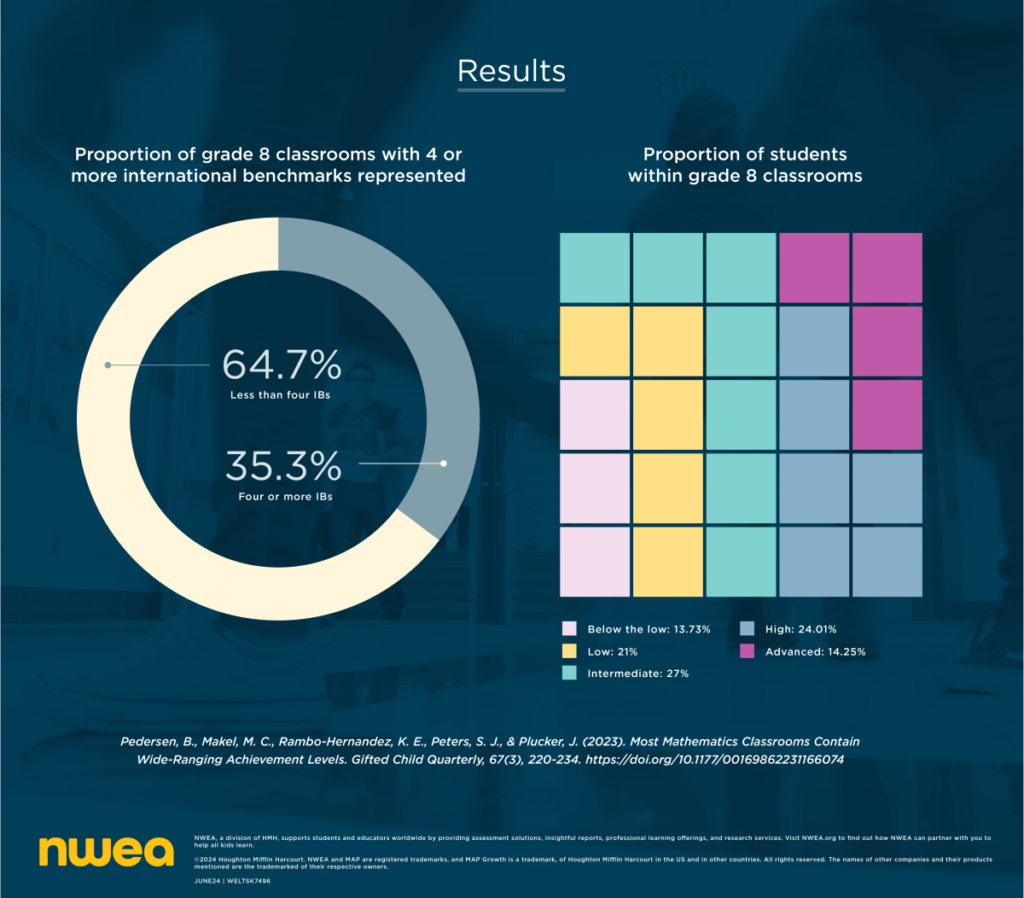Initially printed July 2024
College students in any U.S. classroom are extremely various by way of prior studying, house language, socioeconomic standing, and tradition. They’re additionally various within the ideas, expertise, and requirements they’ve both mastered or are able to study.
Different Ability Ranges
Some kindergarteners are already ready so as to add and subtract (about 7%) whereas others nonetheless can’t establish fundamental shapes (about 5%). Equally, a number of research have revealed the wide-ranging tutorial wants which can be frequent in a typical American classroom. Within the U.S., about 1/3 of Eighth-grade school rooms vary from college students who’re nonetheless working to know fundamental graphs and entire numbers to those that can already clear up linear equations and capabilities—and every thing in between.

It’s a difficult process for any classroom trainer. At the very least the scholars on the superior finish of this achievement and readiness distribution could be subject-accelerated right into a higher-level math class. This would possibly take the type of sixth or Seventh graders taking Pre-Algebra or Seventh or Eighth graders taking Algebra 1. But when colleges are going to make this an choice, they want steerage to acknowledge this: what stage are the scholars prepared for; would they profit by accelerating into a better stage class?
Understanding the Standards
Over the previous couple of months, I labored on a undertaking utilizing NWEA MAP Progress knowledge. I used to be figuring out what scores ought to a faculty think about when deciding if a scholar is able to be accelerated into Algebra 1 subsequent yr.
I discovered that assuming college students will exhibit common progress all through their Algebra 1 class, roughly 1/fifth and 1/third of scholars are “prepared” for Algebra 1 on the finish of sixth and Seventh grades, respectively. After some back-of-the-envelope calculations of Spring 2024 MAP Progress math scores, I discovered that 27% of sixth graders and 31% of Seventh graders met these standards.
Why Does This Matter?
First, it reveals that within the U.S., a considerable variety of college students are prepared for Algebra in Eighth and even Seventh grade. They need to not have to attend till ninth grade to take this course. Doing so would go away expertise on the sideline, stopping these college students from taking extra, extra superior programs in highschool.

What’s extra, by being in Seventh- or Eighth-grade math courses, versus Algebra 1, academics are stretched much more to maintain these college students engaged and challenged. That is pulling tutorial consideration away from the precise grade-level content material that many of the college students want. Permitting superior college students to progress to Algebra 1 helps them to proceed rising and creating, whereas additionally enabling academics to concentrate on core content material.
Proactive Method
Merely understanding which college students are prepared for Algebra 1 isn’t sufficient. Colleges ought to actively assess college students and think about mechanically enrolling them in Algebra 1 in the event that they exhibit ample readiness. States comparable to North Carolina and Texas are utilizing their state summative evaluation knowledge for this goal, whereas many different colleges can obtain the identical utilizing interim assessments like MAP Progress.
By using present evaluation knowledge, we are able to be certain that college students are positioned in programs that present them with applicable educational challenges.
Dr. Scott Peters is the Director of Analysis Consulting Partnerships at NWEA (Northwest Analysis Affiliation).